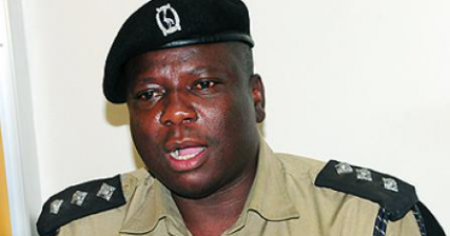Uganda’s People’s Defence Forces has launched a de-radicalisation campaign in an effort to thwart recruitment drives by terrorist groups, including the Somali-based Islamist group al-Shabaab.

Colonel Paddy Ankunda says the move came after the Allied Democratic Front – a terrorist group – began recruiting radical youths for al-Qaeda in the region. Ankunda says the military aims to stop the terrorist recruitment by educating the population about activities of the group.
“This is targeting areas where those who have been recruiting terrorists and would-be radicals have been operating, particularly in areas of central Uganda. What we’ve done now is to engage with the public to engage with the communities that are being targeted by the terrorists through campaign in the media to ensure that we show them the dangers of getting involved in radical activities,” he said.
President Yoweri Museveni met with U.S. National Security Advisor Susan Rice on Tuesday (May 5th) to exchange views on regional developments. Topics discussed include the importance of cooperation between the United States and Uganda to counter terrorism and prevent violent extremism in the region.
Ankunda hailed the significant support the UPDF receives from the U.S. government in the fight against terrorism.
“The partnership between Uganda and the United States is very critical, considering the role that we are playing in the region to deal with these radical characters. Right from Somalia through to dealing with the Allied Democratic Forces and the Lord’s Resistance Army, operating now in the Central African Republic,” he said.
“With the Lord’s Resistance Army, the partnership has yielded, so far so much including the recent surrender of Dominic Ongwen and his handing over to the International Criminal Court and we appreciate [it]. The united states support I think stands out above all the other countries as being very consistent in supporting those willing African partners to fight terrorism,” he said.
Experts say the terrorist groups in the region have been using various social media platforms to radicalize and recruit young people to join them. But, Ankunda says President Museveni’s government has embraced social media as well as using traditional media platforms including radio and television in a bid to combat the activities of the terrorist groups.
“We have created several platforms through which we reach out to the public, highlighting on the dangers of getting involved in radicalism. These platforms are very vibrant [and] fortunately, some of them are being managed by people who ordinarily would be involved in some of these vices,” said Ankunda.
“They include people whom we have changed over a time that were part of radicalism and are now being used to help in mobilizing the population, and they are saying this does not take us anywhere, please stop it,” he added.
Ankunda says the Ugandan army seeks to win the hearts and minds of citizens in the troubled spots where its troops are deployed. He also said there is a combined regional effort to confront and combat terrorism in the sub-region.
“What we have done as a region and as a country is create a regional mechanism of networking that brings together regional actors, intelligence agencies in order that we can get actionable time run accurate intelligence about these movements [of terrorists],” he said.
Ankunda says the efforts, led to the capture of Somali-based Islamist extremists who, he says, confessed to preparing to launch attacks in Uganda’s capital, Kampala. He says explosive materials were also recovered from them.
The terrorists, Ankunda said, travelled from Somalia, using Kenya as a transit point to enter Uganda.
“So these mechanisms are working and I think we should strengthen them further and coordinate intelligence across the borders and share it on a timely basis. So that when these characters cross the border they can be tracked,” he said.









